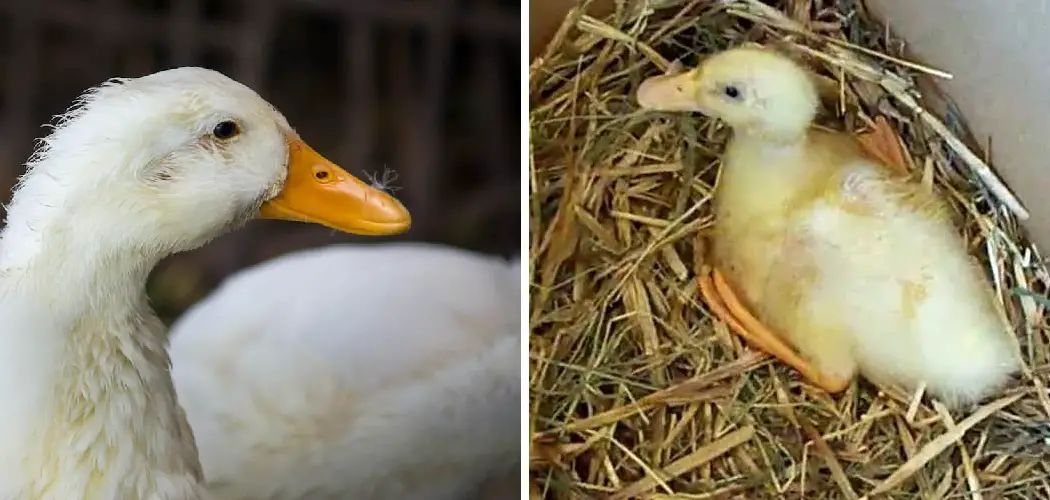Niacin deficiency in ducks can lead to serious health issues, affecting their growth and mobility. Ensuring your ducks receive adequate niacin is crucial for their overall well-being.
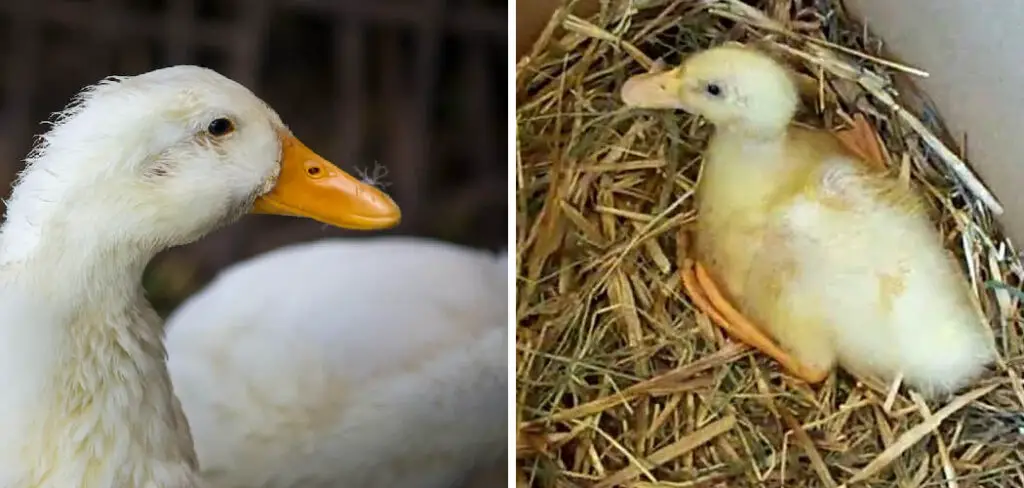
This guide will provide you with how to fix niacin deficiency in ducks, recommend dietary sources rich in niacin, and suggest supplements to correct the deficiency. By following these strategies, you can ensure your ducks stay healthy, active, and thrive in their environment.
Importance of Niacin for Duck Health
Niacin, also known as vitamin B3, plays a vital role in the health and development of ducks. It is essential for proper metabolic functions, energy production, and maintaining the integrity of their skin and feathers. Adequate niacin levels support growth, help prevent leg deformities, and ensure muscular strength, which is particularly important for ducklings as they develop.
Without sufficient niacin, ducks can suffer from symptoms such as poor appetite, retarded growth, weakness, and severe leg issues that can hinder their ability to walk or swim properly.
Understanding Niacin Deficiency
Niacin deficiency in ducks, also known as pellagra, occurs when there is an inadequate supply of niacin in their diet. This deficiency can manifest in various ways, making it essential for duck owners to recognize the signs early.
Ducks with niacin deficiency may exhibit symptoms such as poor growth rates, lethargy, and an abnormal gait often referred to as “stargazing,” where the duck appears to struggle with walking or standing. In severe cases, ducks can develop a condition known as “spraddle leg,” where their legs splay out to the sides, making it difficult for them to support their weight. Additionally, niacin deficiency can weaken their immune system, making them more susceptible to infections and diseases.
10 Methods How to Fix Niacin Deficiency in Ducks
1. Adjust the Diet to Include Niacin-Rich Foods
One of the primary methods to address niacin deficiency in ducks is to adjust their diet to include foods rich in niacin. Provide a balanced diet that incorporates niacin sources such as liver, fish meal, yeast, and fortified poultry feeds. Duck-specific pellets or crumbles formulated for waterfowl often contain added niacin to meet their nutritional requirements.
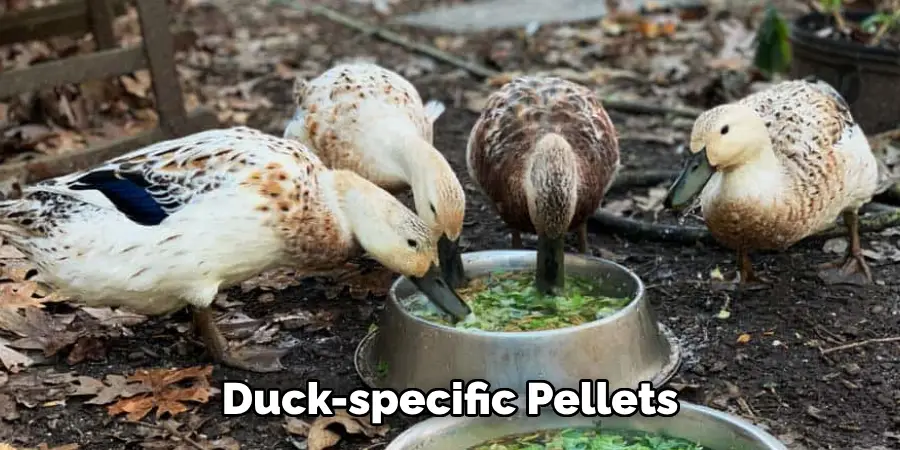
Supplement the diet with niacin-rich foods like green leafy vegetables, whole grains, and nuts, which provide natural sources of niacin. Adjust the proportion of these foods based on the age, breed, and reproductive status of the ducks to ensure they receive adequate niacin for their specific needs.
2. Offer Brewer’s Yeast as a Supplement
Brewer’s yeast is a valuable supplement for ducks experiencing niacin deficiency, as it is rich in niacin and other B vitamins. Incorporate brewer’s yeast into their diet by mixing it with their feed or offering it as a standalone treat. Sprinkle a small amount of brewer’s yeast over their food daily to boost their niacin intake.
Brewer’s yeast not only provides essential nutrients but also enhances the palatability of their diet, making it more likely that ducks will consume it willingly. Ensure the brewer’s yeast is fresh and free from contaminants to maximize its effectiveness in addressing niacin deficiency in ducks.
3. Add Niacin Supplements to Water
Niacin supplements can be added to ducks’ drinking water as a convenient method to address niacin deficiency. Choose water-soluble niacin supplements designed for poultry and follow manufacturer instructions for proper dosage.
Mix the niacin supplement thoroughly into fresh, clean water provided in waterers or shallow dishes. Ducks will absorb the niacin through their drinking water, ensuring they receive a consistent and adequate supply. Monitor water consumption to ensure ducks are receiving the recommended dosage of niacin supplements daily. Adjust the dosage as needed based on the severity of niacin deficiency and the response of the ducks to supplementation.
4. Offer Nutritional Yeast Flakes
Nutritional yeast flakes are another beneficial supplement for ducks lacking sufficient niacin in their diet. Nutritional yeast is rich in B vitamins, including niacin, and provides a savory flavor that ducks find appealing. Sprinkle nutritional yeast flakes over their feed or mix them into wet mash or treats to encourage consumption.
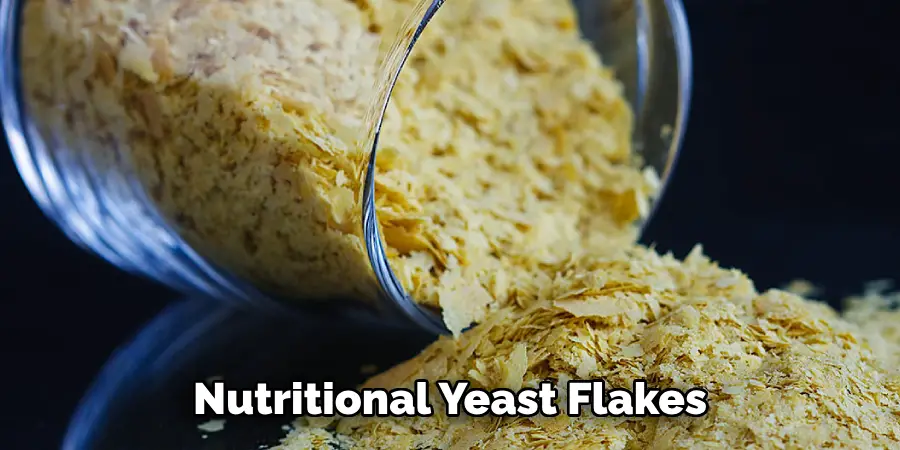
Nutritional yeast flakes are readily available at health food stores or online and can be incorporated into ducks’ diet as a natural and palatable niacin source. Introduce nutritional yeast gradually and monitor ducks’ response to ensure they tolerate it well and benefit from its niacin content.
5. Provide Fresh Greens and Vegetables
Fresh greens and vegetables are essential components of a balanced diet for ducks and can contribute to addressing niacin deficiency. Offer ducks a variety of leafy greens such as spinach, kale, and lettuce, which are rich in niacin and other essential nutrients. Include vegetables like carrots, peas, and broccoli, which provide additional vitamins and minerals that support overall health.
Chop or shred greens and vegetables into bite-sized pieces to make them easier for ducks to consume. Rotate the types of greens and vegetables offered to provide dietary variety and ensure ducks receive a spectrum of nutrients, including niacin, to address deficiencies effectively.
6. Ensure Adequate Protein Intake
Protein is essential for niacin metabolism in ducks, and inadequate protein intake can contribute to niacin deficiency. Provide ducks with a balanced diet that includes a sufficient amount of high-quality protein sources such as poultry meal, fish meal, and insects.
Commercial duck feed or formulated pellets typically contain the necessary protein levels for ducks of different ages and life stages. Supplement their diet with protein-rich foods like mealworms, crickets, or scrambled eggs to boost their protein intake. Adequate protein supports overall health and ensures ducks can effectively utilize niacin from their diet to prevent deficiencies.
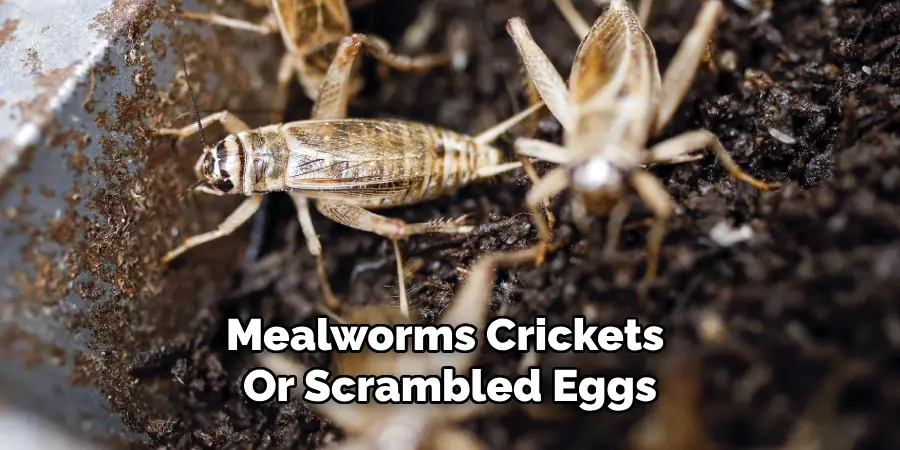
7. Monitor and Adjust Diet Based on Age and Life Stage
Ducks’ niacin requirements vary depending on their age, breed, and reproductive status, so it’s essential to monitor and adjust their diet accordingly. Ducklings have higher niacin needs during rapid growth phases, while adult ducks may require different levels of niacin based on egg production or maintenance.
Consult poultry nutrition guidelines or a veterinarian experienced in avian health to determine the appropriate niacin levels for ducks at different life stages. Adjust the niacin content in their diet through feed selection, supplements, and natural sources to meet their specific nutritional needs and prevent deficiencies.
8. Encourage Natural Foraging Behavior
Encouraging natural foraging behavior can help ducks obtain niacin-rich foods and supplements while promoting their physical activity and mental stimulation. Allow ducks access to outdoor areas with vegetation, insects, and natural water sources where they can forage for niacin-rich foods. Scatter treats like mealworms, chopped greens, or nutritional yeast flakes in their foraging areas to encourage exploration and dietary diversity.
Natural foraging satisfies ducks’ natural instincts and encourages them to seek out nutritious foods that contribute to their overall health, including niacin intake to address deficiencies effectively.
9. Provide Access to Clean Water
Access to clean, fresh water is essential for ducks to maintain hydration and support digestion, including the absorption of niacin from their diet. Ensure ducks have access to clean water at all times, provided in waterers or shallow dishes that are regularly cleaned and replenished.
Ducks may increase their water intake when consuming niacin supplements or niacin-rich foods, so monitor water consumption to ensure they remain adequately hydrated. Hydration supports overall health and helps ducks utilize niacin effectively to address deficiencies and maintain optimal well-being.
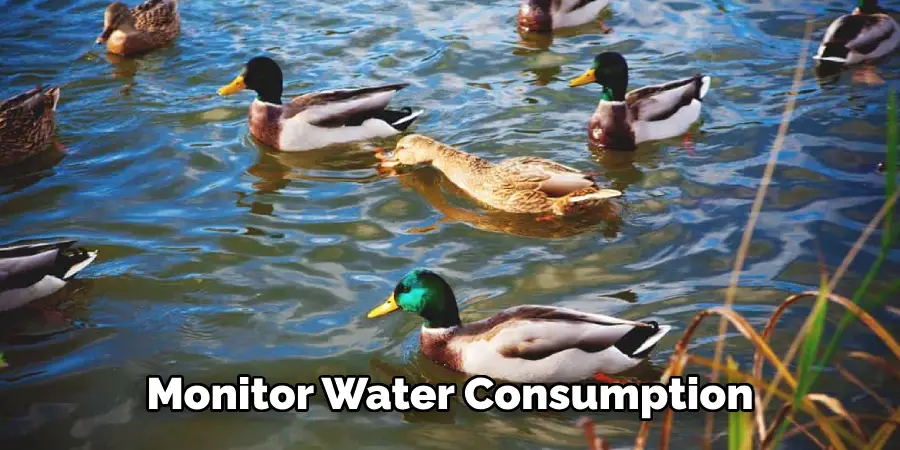
10. Consult with a Veterinarian
If niacin deficiency persists or ducks show signs of health issues related to inadequate niacin intake, consult with a veterinarian specializing in avian health. A veterinarian can conduct diagnostic tests to assess niacin levels and provide tailored recommendations for addressing deficiencies. They may recommend specific niacin supplements, dietary adjustments, or treatments based on the individual needs of your ducks.
Regular veterinary care and monitoring are essential for preventing and managing nutritional deficiencies in ducks, ensuring they receive the necessary niacin and other nutrients for optimal health and development.
Things to Consider When
When addressing a niacin deficiency in ducks, several considerations should be taken into account to ensure their health and well-being:
- Individual Needs and Variation: Each duck may have varying nutritional needs based on age, breed, and health status. Tailoring the niacin supplementation and dietary adjustments to each duck’s specific requirements is crucial for effective management.
- Symptoms of Deficiency: Be vigilant for symptoms of niacin deficiency such as poor growth, lameness, and lethargy. Early detection and intervention can prevent severe health issues and ensure more effective remediation.
- Quality of Supplements: Ensure that any niacin supplements or nutritional yeast used are of high quality and free from contaminants. Opt for reputable brands and consult a veterinarian if unsure about the product’s suitability.
- Dietary Balance: Maintain a balanced diet that includes not only niacin but all essential nutrients. Over-supplementation of one nutrient can lead to imbalances and other health problems.
Conclusion
By implementing these methods, you can effectively address niacin deficiency in ducks and promote their overall health and well-being. Providing a balanced diet, incorporating niacin-rich foods and supplements, monitoring dietary intake, and encouraging natural behaviors are key strategies to prevent and manage niacin deficiencies in ducks of all ages and breeds. Thanks for reading, and we hope this has given you some inspiration on how to fix niacin deficiency in ducks!
About
Outdoor Fixes is a distinguished figure in the world of Diy design, with a decade of expertise creating innovative and sustainable Diy solutions.
His professional focus lies in merging traditional craftsmanship with modern manufacturing techniques,
fostering designs that are both practical and environmentally conscious. As the author of diy,
outdoorfixes delves into the art and science of outdoorfixes-making, inspiring artisans and industry professionals alike.
Education RMIT University
(Melbourne, Australia) Associate Degree in Design (Outdoor Fixes) Focus on sustainable design, industry-driven projects,
and practical craftsmanship. Gained hands-on experience with traditional and digital manufacturing tools, such as CAD and CNC software.
Nottingham Trent University
(United Kingdom) Bachelor’s in outdoorfixes.com and Product Design (Honors) Specialized in product design with a focus on blending creativity with production
techniques. Participated in industry projects, working with companies like John Lewis and Vitsoe to gain real-world insights.
Publications and Impact
In diy, Outdoor Fixes his insights on indoor design processes, materials, and strategies for efficient production.
His writing bridges the gap between artisan knowledge and modern industry needs, making it a must-read for both budding designers and seasoned professionals.

